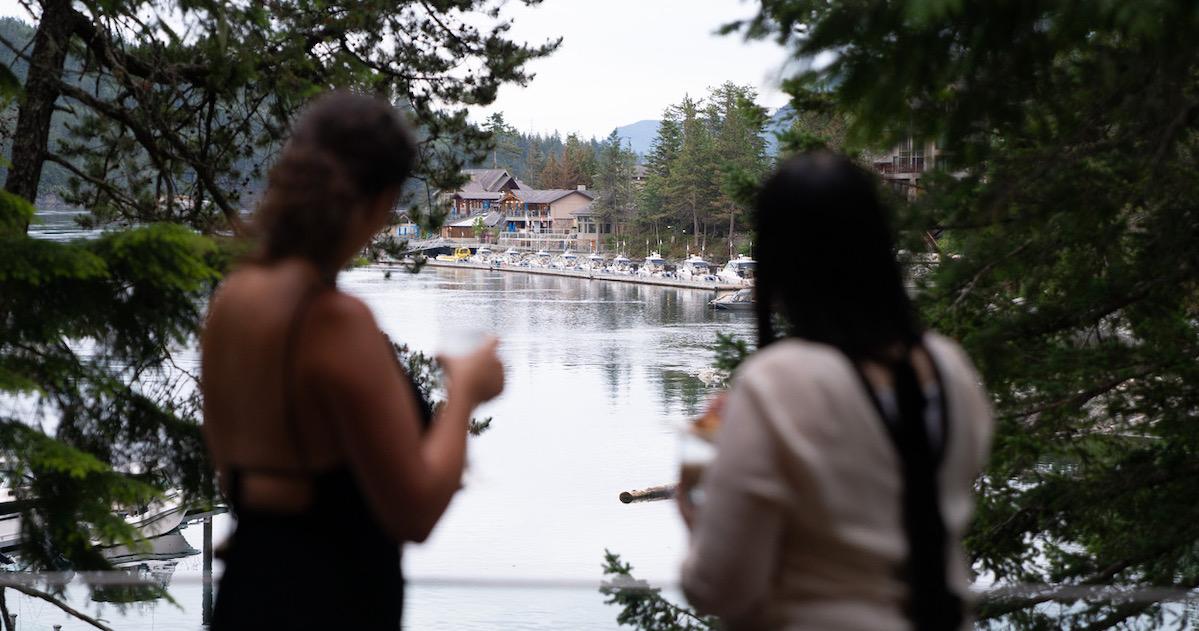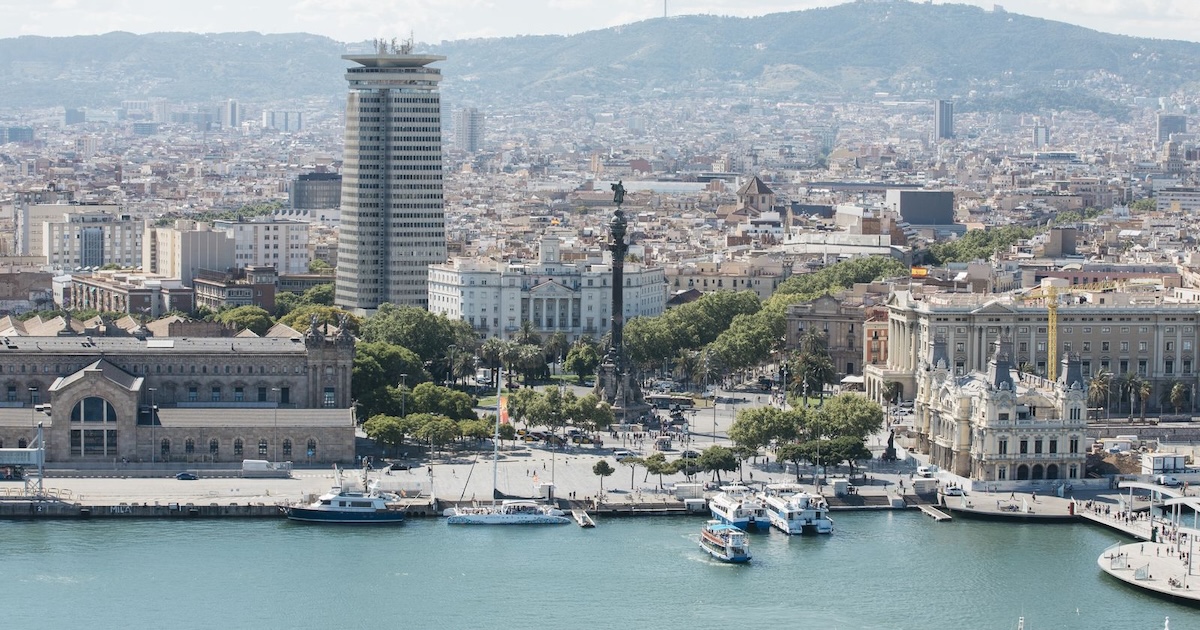Business Events Canada delivers a powerful and impressive one-two punch when it comes to convincing international meeting planners to consider Canada for incentives and meetings.
The seventh edition of Incentive Canada concluded Monday with a group of nearly 40 international meeting planners experiencing a combination of the exquisite beauty of Sonora Resort in the British Columbia wilderness with an urban destination centered around the twin properties JW Marriott Parq and the Douglas in Vancouver in a program designed to create more awareness of British Columbia’s meetings, incentives, conferences and exhibitions (MICE) industry.
The group split four days at the two locations, with representatives from more than 30 meetings and incentives partners and destinations from throughout Canada. Together, they shared experiences from scenic helicopter and float plane rides, nature hikes, whale watching and unique food and beverage to urban activities such as bike riding and cultural tours. In addition, the group explored how destinations such as the Sonora Resort and JW Marriott Parq and the Douglass can incorporate MICE business into their properties.
This was the second time in the last seven years that Business Events Canada, part of Destination Canada (which promotes MICE business), has designed a two-destination event for meeting planners.
“The demographics are changing for incentives,” said Chantal Sturk-Nadeau, executive director of Destination Canada’s Business Events Canada team. “What people are seeking is quite different. Showcasing an urban component, whether the city itself or the culture, the food and entertainment, then complementing it with edge of wilderness, calm peaceful experiences that are so close in proximity to an urban area is an opportunity unique to Canada.”
She said some destinations are clearly well-known and established, such at Fairmont Banff Springs, but destinations such as Sonora Resort or Fogo Island are starting to gain traction.
“People are looking at smaller hidden gems that are unique to Canada,” she said. “As workforces evolve, organizations need to choose incentive rewards that appeal to a spectrum of ages and interests. We are finding organizations don't want to do the tried-and-true. They want new. They want innovative. They want something transformational, they want their winners to connect with the people and places in meaningful ways. When you look at incentives, you can't host incentives unless you are top notch.”
She said when one looks at major destinations such as London or Paris, it can sometimes take an hour or more to get out of the city.
“Now it’s about finding alternate modes for transportation that is a different experience like a helicopter ride where it’s low flying and you can see the destination,” she said. “That then becomes part of the experience. You’re not just sitting there in a bus. We’re now including urban centers and allowing the urban centers to look at themselves as different and creating partnerships with those other (resort) destinations.
“It’s about having these local experiences that are connected not just to nature but to the people. Canada’s very much known for being in the spotlight for the last three to four years for several reasons and it always becomes our people being a key component. Yes, you have experiences and destinations and amazing resorts, but it's now connecting yourself to those local communities and that’s what people are looking for.”
The MICE industry generated about $33 billion annually in direct spending and the industry employs more than 229,000 jobs, according to a recent report from Meetings Mean Business Canada. In 2017, more than 1.3 visitors to Canada arrived for MICE business, with U.S. business visitors growing at a faster rate than U.S. leisure visitors. Canada’s global ranking for delegate attendance moved to fifth place in 2018 (up from seventh in 2017) per the ICCA City and Country Ranking Report.
In 2018, Toronto welcomed 84,600 delegates, a 112 percent increase year over the previous year, while Montréal continued its climb up the delegate rankings by placing 15th in 2018, up four places over the previous year. Meanwhile, Vancouver placed 29th on the list.
Stacey Allen, corporate communications manager, executive programs, for Praxair Inc. in Danbury, Conn., said she was quite impressed with the four-day program.
“It was a valuable event,” she said. “Whether you have or haven’t been to British Columbia, Incentive Canada did a great job of showing us what these beautiful gems have to offer. Being able to meet with so many varied partners and get insider knowledge was extremely helpful. This was time well spent. We don’t think about Canada enough and it’s right here. I’m definitely going to consider Canada.”
The event was just a beneficial for the partners, who met with each meeting planner in a hosted buyer-type format.
Regis Fleury, account executive for Québec City Business Destination, said the networking throughout the event is critical to building relationships that lead to business opportunities.
“This event makes it easy for us to make those connections,” he said. “To have that kind of access for three to four days is valuable. This is really an event I can’t miss.”
Incentive Canada is just one of the strategic initiatives Business Events Canada utilizes for bringing awareness to the value of bringing meetings and incentives to the country. The organization launched a knowledge-based, business event development strategy in 2017, Innovate Canada, leveraging the country’s wealth of industry and academic leaders in seven key sectors: aerospace technology, agriculture and agri-food manufacturing, clean technology, advanced manufacturing, life sciences, information and communications technology and natural resources.
Business Events Canada is matching specific cities, which have existing centers of excellence, with those sectors, incorporating the strategy into such events as the C2 Montréal conference in 2018 and this year’s Collision Conference in Toronto.
“Everyone has state-of-the-art conference centers,” Sturk-Nadeau said. “That’s an expectation. Everyone has cool meeting rooms with a view. So how does Canada differentiate itself on the world stage if we’re competing against any other destination? Industry leadership could be one thing that splits the hair in our advantage.”
Sturk-Nadeau said the strategy not only aligns specific educational strengths, but also engages thought leadership and the C-suite.
“All these conferences that are coming are finding all these connections,” she said. “They’re not just coming for the destination. They’re coming because of its knowledge capital, and when you start looking at it like that, the legacy of that conference is great, not only for the city but for that company that came. We’ve been focusing a lot on that on the corporate and association side and it ties back into incentives because when you’re seen that way, well, maybe I should have my board meeting or my executive meeting here first and then bring my entire conference. Those things are spurring interest and we’re getting amazing feedback.”







